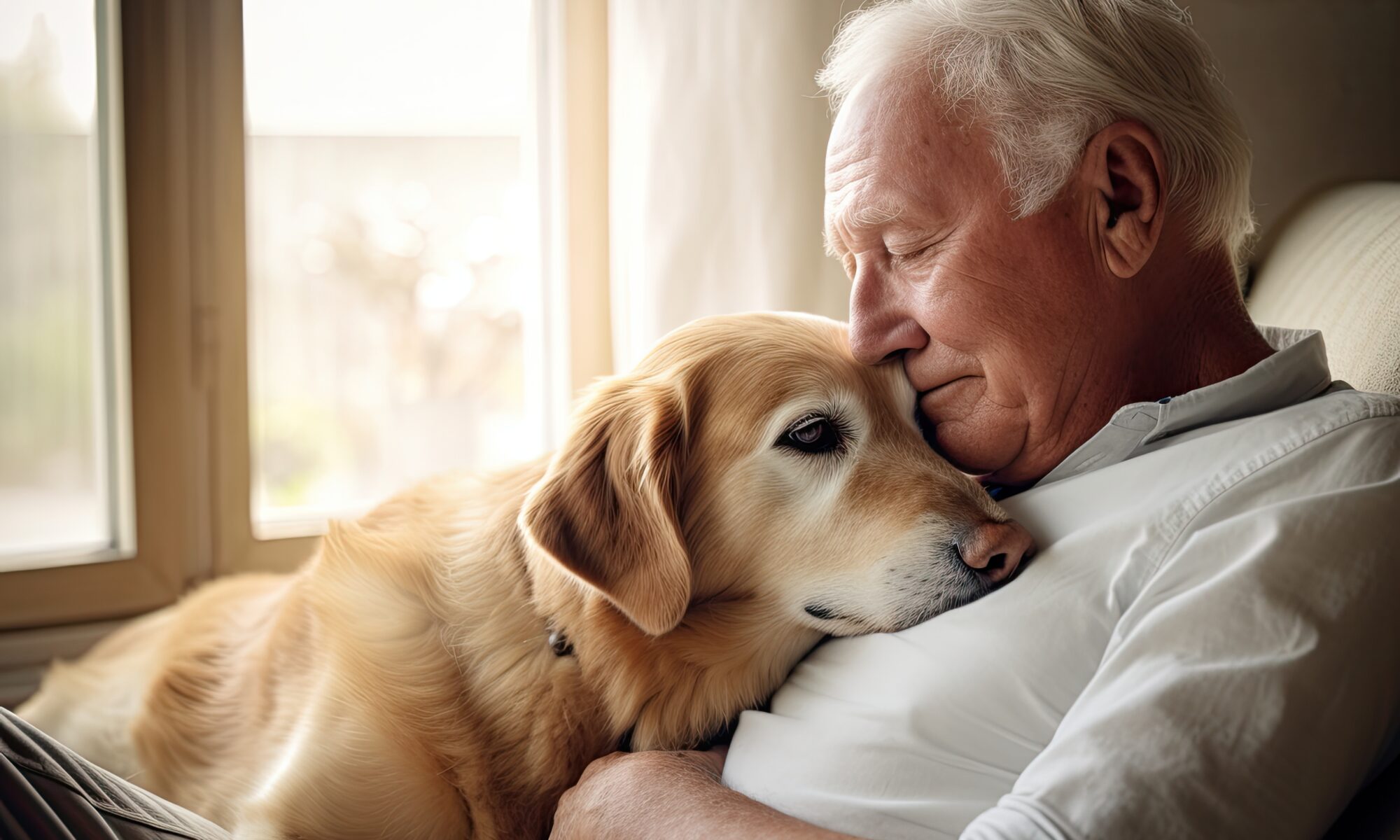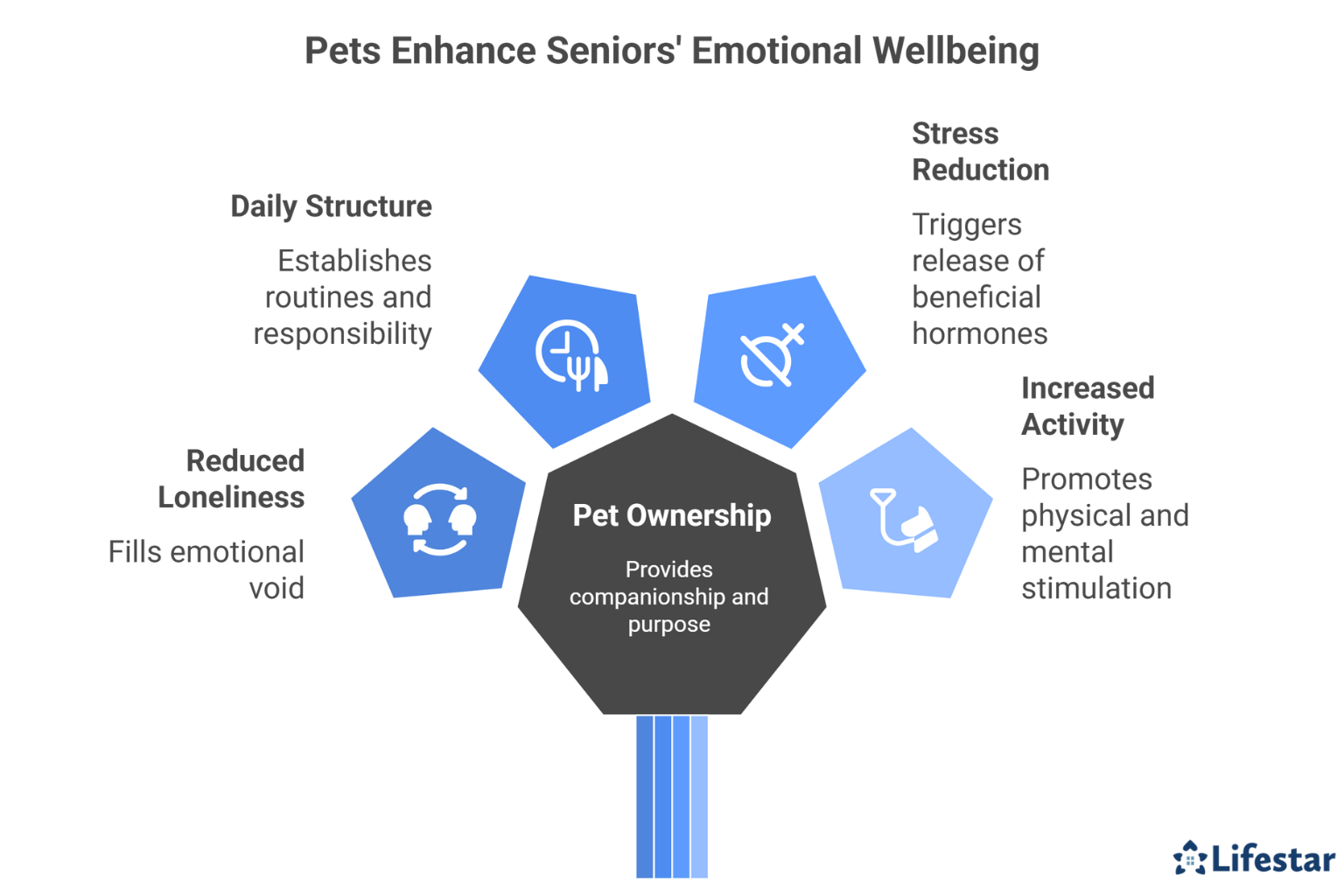
Table of Content
As people age, maintaining emotional health becomes increasingly important for overall quality of life. Pets offer unique benefits that can significantly enhance the emotional wellbeing of seniors living at home, providing companionship, purpose, and joy during this important life stage.
Combat Loneliness through Constant Companionship
One of the most significant challenges seniors face is social isolation, particularly when living alone. Pets provide a reliable source of companionship that fills the emotional void left by reduced social interactions.
Dogs and cats offer unconditional love and presence, creating a sense of being needed and valued. Unlike human relationships that may become complicated or distant over time, pets provide consistent emotional support without judgment. This constant companionship can dramatically reduce feelings of loneliness and depression many seniors experience.
Even smaller pets like birds or fish can provide meaningful interaction. Talking to a pet, watching its daily routines, or simply having another living being in the home creates a sense of connection that supports mental health.

Create Daily Structure and Purpose
Pets naturally establish routines that give seniors a sense of purpose and responsibility. This structure becomes particularly valuable for those who may have lost the daily framework that work or raising children once provided.
Pet care responsibilities include:
- Regular feeding schedules
- Daily walks or exercise time
- Grooming and health maintenance
- Play time and social interaction
- Veterinary appointments and health monitoring
These activities create meaningful goals throughout the day and week. Having pets depend on them gives seniors a reason to maintain regular sleep schedules, stay active, and remain engaged with daily life. This sense of responsibility can boost self-esteem and provide motivation during difficult periods.
Reduce Stress and Anxiety Naturally
The simple act of petting an animal triggers the release of beneficial hormones like oxytocin and serotonin while reducing cortisol levels. This biological response helps seniors manage stress more effectively and can even lower blood pressure.
Pets also serve as natural conversation starters and social facilitators. Walking a dog often leads to interactions with neighbors or other pet owners, helping seniors maintain social connections within their community. These casual encounters can develop into meaningful friendships and support networks.
The calming presence of pets can be particularly beneficial for seniors experiencing grief, health concerns, or major life transitions. Animals seem to sense emotional distress and often provide comfort through their presence and affection.
Owning a pet is known to boost quality of life, but seniors often require additional assistance to remain healthy and happy. Many older adults are choosing to age in place, and some need a helping hand to continue living at home safely and comfortably. Luckily, there is professional home care seniors can trust and rely on.
Encourage Physical Activity and Mental Stimulation
Pet ownership naturally promotes physical activity, which is crucial for senior health. Dog owners must walk their pets regularly, while cat owners engage in play activities and daily care tasks. Even caring for smaller pets requires movement and engagement.
Beyond physical benefits, pets provide mental stimulation through:
- Training and teaching new behaviors
- Learning about pet care and health
- Problem-solving daily care challenges
- Observing and responding to pet personalities
This mental engagement keeps the mind active and can contribute to cognitive health.
Interacting with pets isn’t the only way older adults can receive mental and social stimulation. For families living in Oklahoma City, respite care can be a wonderful solution when their aging loved ones need companionship and socialization a few hours a week or just need minor assistance with daily household tasks. At Lifestar Home Care, we thrive on helping seniors maintain their independence while living in the comfort of home.
Choosing the Right Pet for Senior Needs
Not all pets are equally suited for senior care. The best choice depends on your loved one’s physical abilities, living situation, and personal preferences.
Low-maintenance options that still provide emotional benefits include:
- Cats, which are independent but affectionate
- Small dogs with calm temperaments
- Birds that can learn to talk and interact
- Fish, which provide visual interest and require routine care
Seniors should consider their energy levels, mobility limitations, and long-term care capabilities when selecting pets. Consulting with family members, healthcare providers, and local animal shelters can help you identify the most appropriate match.
The emotional benefits of pet ownership for seniors are substantial and well documented. From reducing loneliness to providing daily purpose and encouraging healthy routines, pets can transform the home environment into a more joyful and emotionally supportive space for an aging adult.
Although owning a pet provides a variety of benefits, some seniors have serious medical issues that prohibit them from being able to care for companion animals. There are a variety of age-related health conditions that can make it more challenging for seniors to live independently. However, many of the challenges they face can be easier to manage if their families opt for professional home care. Oklahoma City families can rely on expertly trained caregivers to keep their loved ones safe and comfortable while aging in place. Reach out to us at Lifestar Home Care if you need compassionate professional care for your loved one. Call one of our dedicated Care Managers today to learn about the high quality of our in-home care services.